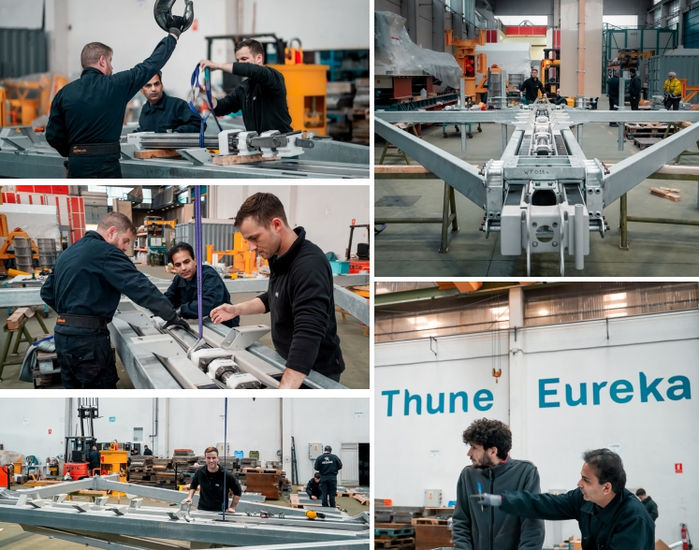U.S.A. – Arizona is considering desalination as a solution to its prolonged water crisis, prompted by the decades-long mega-drought affecting the region. Former Governor Doug Ducey and the Arizona Water Infrastructure Finance Authority have proposed desalination initiatives, with a $5.5 billion plan to build a desalination plant in Mexico's Rocky Point and transport the water to Phoenix. The feasibility of desalination in a landlocked state like Arizona is questioned due to the high cost, international border challenges, and environmental concerns. California's Carlsbad desalination plant, the largest in the Western Hemisphere, provides insights into the process. However, challenges, including long permitting periods and regulatory requirements, highlight the complexity of implementing desalination solutions. (FOX10 Phoenix)
KAZAKHSTAN – According to Deputy Chairman of the Kazakh Construction and Housing-Communal Services Affairs Committee Azimbek Pazylbekuly, Kazakhstan is planning to build 9 seawater desalination plants with an estimated cost of more than $541.4 million, to solve the problem of potable water in Kazakhstan's Mangystau region. According to Pazylbekuly, in 2025, the shortage of drinking water in the Mangystau region may amount to 100,000-110,000 m3/d. As part of the budget program of the Ministry of Industry and Infrastructural Development, a project is being implemented to expand the capacity of the Caspian Desalination Plant in Aktau to 40,000 m3/d. The project will be completed by the end of this year, according to the chairman. $9.2 million are allocated for the start of projects for the construction of desalination plants in the city of Fort-Shevchenko with a capacity of 5,000 m3/d and $21 million for the MAEK-Kazatomprom LLP in the city of Aktau with a capacity of 24,000 m3/d. In addition, the construction of a desalination plant at the Karazhanbas oil field with a capacity of 17,000 m3/d is expected to be completed. (AZERNEWS)
AUSTRALIA – Construction is progressing on SA Water's Kangaroo Island desalination plant, with the installation of a 20 km underground pipeline underway. The pipeline is part of a total 50 km being laid to deliver safe water to new and existing customers from the desalination facility. The facility is expected to be operational by mid-2024. The desalination plant, with a capacity of 2,000 m3/d, aims to enhance Kangaroo Island's water security. Construction is also advancing at the plant site on Hog Bay Road. (Utility Magazine)
SPAIN – Danish company Wavepiston is progressing with the final factory acceptance tests and assembly of its wave energy collectors, in collaboration with manufacturer Thune Eureka. The energy collectors are being produced for deployment at Wavepiston's first full-scale demonstration site at the Oceanic Platform of the Canary Islands (PLOCAN). The wave energy system involves placing energy collectors in the ocean to produce pressurized seawater, which is then transported to the shore for power generation and reverse osmosis units for desalination. The assembly and acceptance tests are ongoing at Thune Eureka before the components are transported to Gran Canaria for final assembly and installation at sea. Wavepiston recently secured $2.44 million through a crowdfunding campaign to support its technology demonstration in the Canary Islands and other business activities. (Offshore Energy)

Factory acceptance test of energy collectors at Thune Eureka factory. Credit: Wavepiston
SAUDI ARABIA – Italian group Industrie De Nora has secured a contract from the Saline Water Conversion Corporation (SWCC) in Saudi Arabia for the upgrade of Phase Two of the Al Jubail Desalination Plant. The upgrade aims to make the Jubail facility the world's largest seawater reverse osmosis (SWRO) desalination plant, capable of producing up to 1 million m3/d. De Nora will provide three proprietary technologies, including the Seaclor system for biofouling control, De Nora Tetra underdrain filters for pretreatment, and Capital Controls Underwater Chlorine Dioxide Generators for final disinfection. The agreement includes ongoing support during installation and operation to reduce life cycle costs. Construction is underway at the Al Jubail plant, with De Nora systems expected to be delivered later this year and completion set for 2024. (Trade Arabia)

